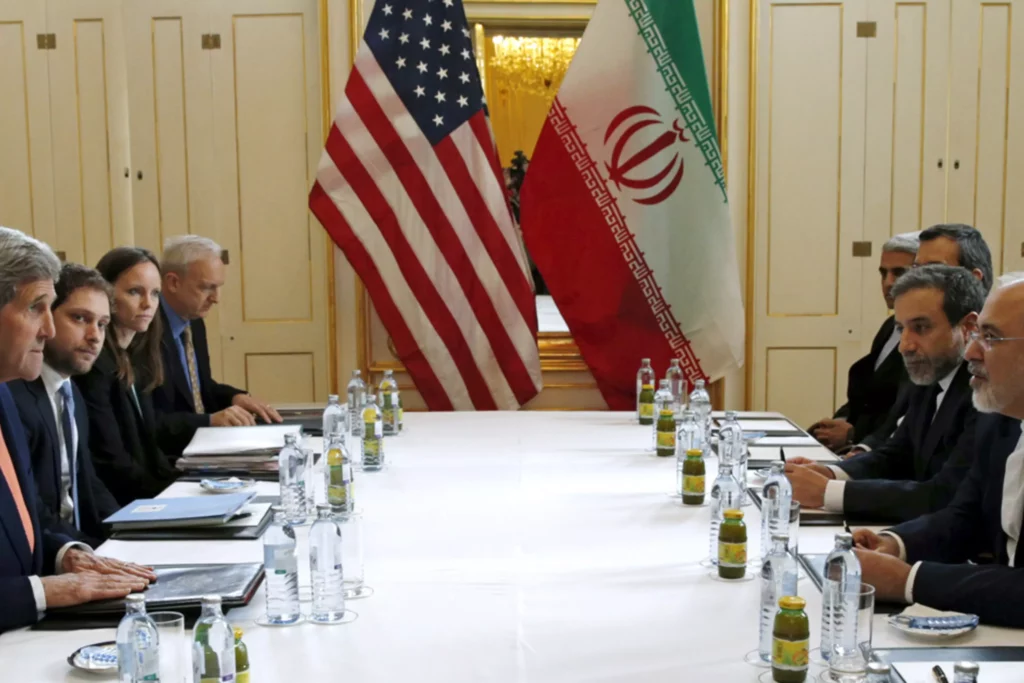My husband joined the Navy in March of 1999 and within thirty months we were engulfed in a war that would last the rest of his military career. When his ship pulled out of New York Harbor on 9/11, I never dreamed that we would still be at war when he retired in November of 2020. For nearly twenty years we dealt with an intense operational tempo where he was gone far more often than he would have been in a time of peace. We saw friends come back from the Middle East struggling with the impact of burn pits and I’ve lost too many friends and family to PTSD.
While the United States has significantly lessened military presence in the region, a conflict with Iran would put our troops in the region again, further straining service members and their families. However, we have a powerful tool in our toolbox that has proven successful and will defuse tensions, restoring the Iran nuclear deal.
As someone who has been on the front lines of the homefront during twenty years of war, I’ve seen the very real risks and consequences of military action. We can never be cavalier about pursuing military options and diplomacy is our strongest alternative when facing global threats. In 2015 the United States led global partners to recognize that Iran was on the brink of developing a nuclear weapon. The global nuclear community came together to use the power of diplomacy to stop Iran’s nuclear weapons program in its tracks with the Iran nuclear deal, otherwise known as the JCPOA. However, in 2018 President Trump decided to remove the USA from the agreement, over the strong objections of our global partners, in exchange for a strategy of increased sanctions he dubbed “maximum pressure.”
Let’s look at the facts: after the United States exited the agreement, Iran’s military spending increased by over 50%, its activities in Syria and Yemen continued unabated, and the US was brought to the brink of war when Trump ordered the killing of Iranian Maj. Gen. Qassem Soleimani in 2019 that then caused a 400% increase of attacks against US troops by Iran-backed militias the following year as retaliation.
And even if you doubt the chances of America deploying troops to stop Iran from acquiring nuclear weapons (which I don’t think you should doubt), America has used diplomacy for decades to prevent the use and delivery of nuclear weapons. Treaties such as SALT, SALT II, START and New START have worked to impose limits on the world’s 2nd largest nuclear weapon program: Russia. The JCPOA was revolutionary in that it stopped a bomb before Iran aquired it by requiring Tehran to provide 24/7 access to its nuclear facilities and supply chain, ship out thousands of pounds of enriched uranium out of the country, and dismantle and remove all centrifuges – the equipment needed to create nuclear material – that could be used to create weapons-grade material. And, it put the breakout time – the time needed to produce enough fissile material for a nuclear weapon – at 12 months. Right now, the maximum pressure campaign against Iran has whittled the breakout time down to days.
A nuclear armed Iran could rapidly become a destabilizing force in a region of the world that is already a tinderbox. Reentering the JCPOA is critically important for world stability, but it also sends a message to military families that our leaders are truly invested in preventing wars through diplomacy.
As a military community we are tired. All of us understand exactly what we signed up for and all of us are ready and willing to answer the call when needed. As a nation, we are tired of war, as is reflected in the historically low number of military recruits. Twenty years of war has left us weary, frustrated and losing faith in the institutions of the military and statecraft. Our service members and their families, as well as the next generation of service members, need to know that our leaders are doing all they can to make sure that a stagnating war isn’t something to be repeated.Our leaders need to do all they can in the diplomatic arena to demonstrate to military families of this generation – and the next – that they are invested in making sure our families don’t have to fight a war that we can avoid.
Addendum: When we first entered the JCPOA, Iranian people were hopeful because sanctions relief made life easier for them and increased their access to the world. However, the mood soured quickly when President Trump removed the United States from the JCPOA and heavy sanctions returned. As of today, Iran is embroiled in mass protests, sparked by the death of a woman named Mahsa Amini, led by women who are bravely risking their life to demand change. Part of the ideology behind the foreign policy in the United States is a focus on human rights. The simple fact is a nuclear-armed Iran is intractable, making it harder to influence on any issue including human rights violations. Reentering the JCPOA will once again give the people of Iran economic growth and a path toward a peaceful future.
About the Author: Erin Thomas Anhalt has been a military, now retired veteran, spouse for over twenty years. She now works to make voting more accessible for military spouses and to raise awareness about military life for spouses and families.
- Military Families Support Re-Entry to Iran Nuclear Deal
- What Top Gun Says About the Iran Nuclear Deal
- Why Nuclear Policy Matters to Military Families

